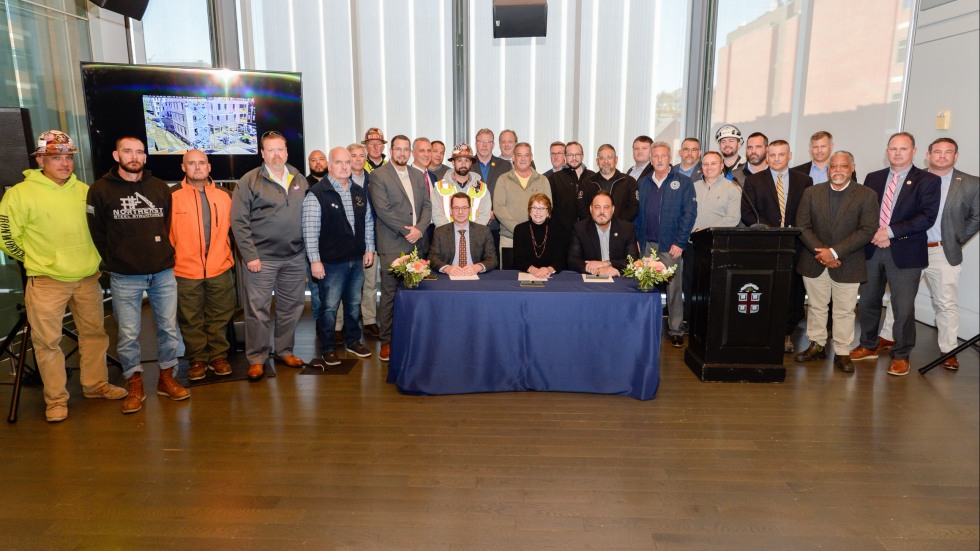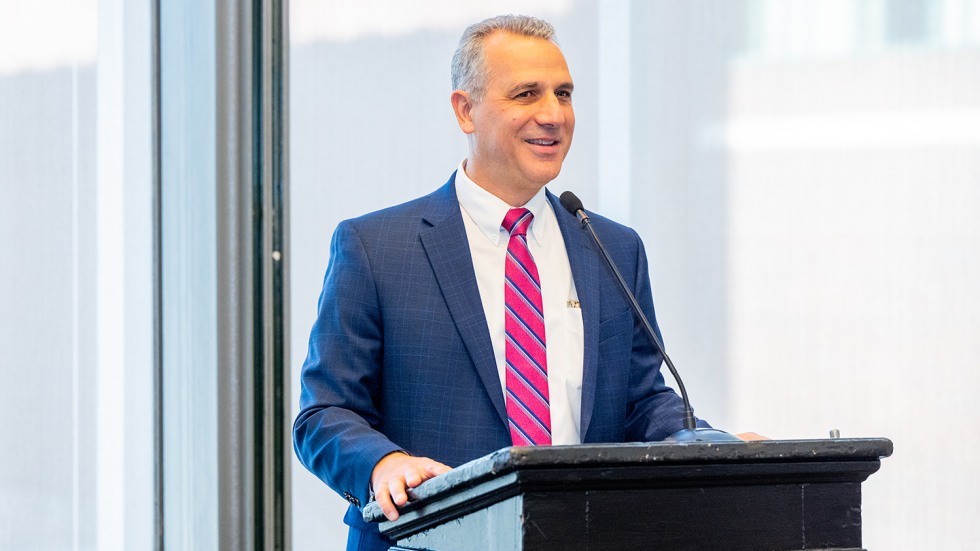PROVIDENCE, R.I. [Brown University] — Through a new landmark agreement with the Rhode Island Building and Construction Trades Council and Building Futures, Brown University has marked a milestone in its longstanding commitment to ensuring that campus development serves as a regional economic engine and career catalyst for local workers.
During a signing ceremony at Brown on Monday, Nov. 14, University President Christina H. Paxson joined leaders from RIBCTC and Building Futures in signing a five-year memorandum of understanding that formally commits Brown to employing all-union labor for all campus construction projects over $25 million. This builds on a strong history of engaging union labor for Brown capital projects.
The agreement also extends the University’s existing goal of ensuring that at least 15% of labor hours worked to construct those projects are performed by graduates of Building Futures. Paxson said the formal project labor agreement deepens Brown’s commitment to the Rhode Island building trades by supporting an array of well-paying union jobs as well as training for local residents looking to build careers in construction.
“As Brown continues to invest in spaces for cutting-edge research, dynamic residential life and innovative teaching and learning, we rely on our longstanding partnerships with the talented tradespeople of Providence and Rhode Island to advance our physical campus and support Brown’s mission,” Paxson said. “This new agreement formalizes Brown’s commitment, and we look forward to building on our history of support for career development among construction laborers and seeing even more local residents thrive and succeed.”

